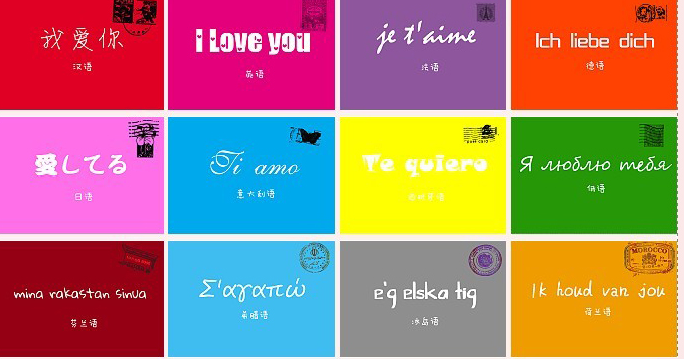单词详解
n.
A. 语言,语言文字 [U] (communication by word of mouth)
Language is very useful to us. 语言对于我们非常重要。
B. (国家、民族等的) 语言文字[C] (systematic means of communicating by the use of sounds or conventional symbols)
The boy can speak several languages. 那个男孩会讲好几种语言。
C. 表达方式, (动物的) 表意方式[C] [U] (a system of words used to name things in a particular discipline)
The deaf and mute can communicate by sign language freely. 聋哑人可以用手势交际。
D. 强烈的言词,骂人的话 [U] (the mental faculty or power of vocal communication)
He shouldn't use such strong language. 他不应该使用这样强硬的措词。
相关词组
1. speak the same language有共同语言
I think they speak the same language. 我认为他们有共同语言。
2. official language 官方语言
They took on French as their official language. 他们采用法语作为官方语言。
相关单词
复数: languages
近义词:speech
相关链接
词语辨析:language, speech, tongue, dialect
language, speech, tongue, dialect
这些名词均含“语言”之意。
language: 普通用词,指人或动物的语言。
speech: 特指人的口语,也指正式的讲话。
tongue: 书面用词,指人的语言,亦指人的母语。
dialect: 指一种语言中,某一地方所特有的语言形式,即方言。
词语详解
1. language: 普通用词,指人或动物的语言。
Language teaching is an art. 语文教学是一门艺术。
2. speech: 特指人的口语,也指正式的讲话。
The boss’s speech disrupted the meeting. 老板的讲话使会场陷入混乱。
3. tongue: 书面用词,指人的语言,亦指人的母语。
That man has a very sharp tongue. 那个人说话非常尖刻。
4. dialect: 指一种语言中,某一地方所特有的语言形式,即方言。
She speaks a dialect. 她说一口方言。



